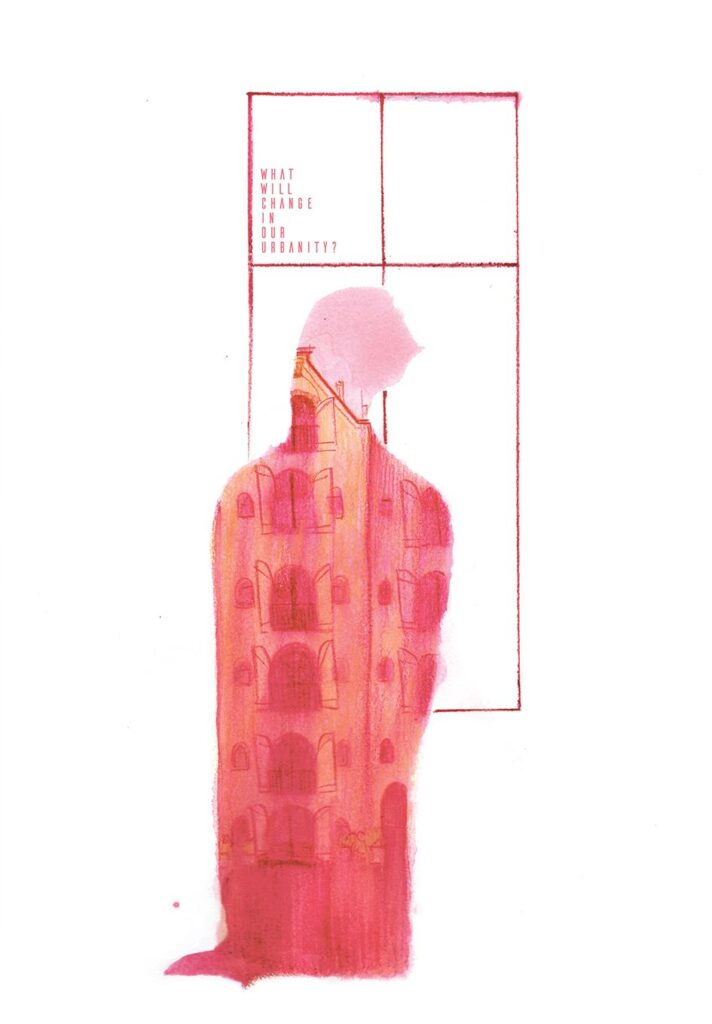Tânia A. Cardoso in Cadernos de Pós-Graduação em Arquitetura e Urbanismo 21.1 (2021)
This article considers the impact of the latest confinement restrictions on the urban embodied research practice in a non-traditional academic format: city illustration. It is a non-sequential route that highlights specific and mostly iconic spaces in the city of Amsterdam while confronting them with the reality of absence. The empty spaces are juxtaposed by ghost conversations, superficial memories of my own embodied practice of walking, contrasting the superficiality of the overcrowded tourist reality in the city of Amsterdam with the solid physical elements that remain in place even without it. Drawing in the streets and learning from this interaction with urban space is an important part of my artistic research. However, everyday life, in general, has quickly changed in recent months due to the emergence and dissemination of the novel coronavirus SARS-CoV-2 around the world. As I find myself confined behind the walls of my house, I turn to these city illustrations to reflect on my role as a female urban researcher, learning how to cope with chronic illness, and the implications of confinement in the practice of artistic and embodied research.
